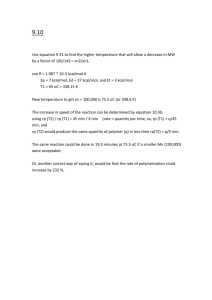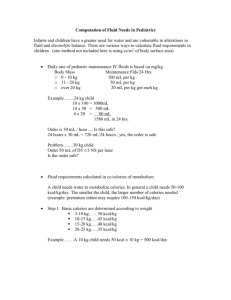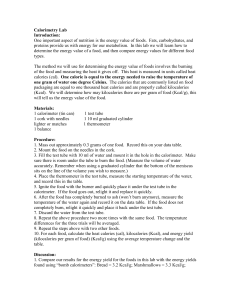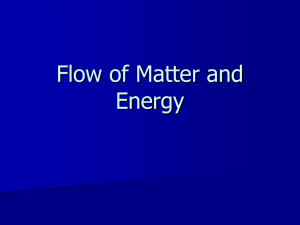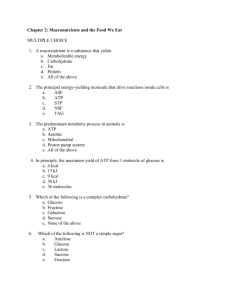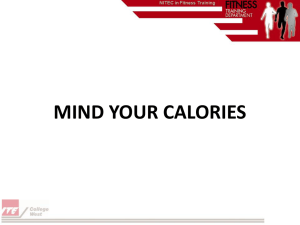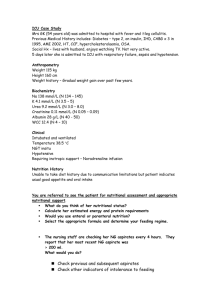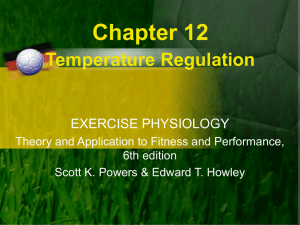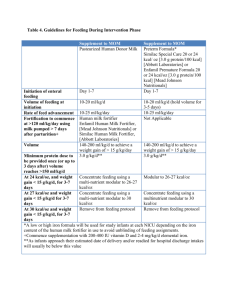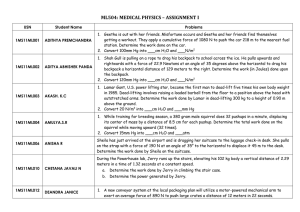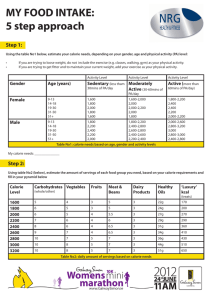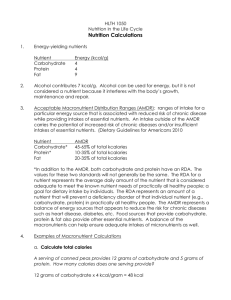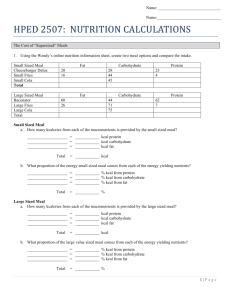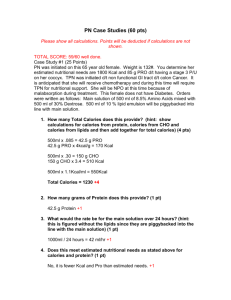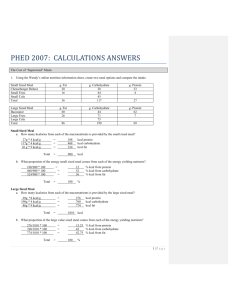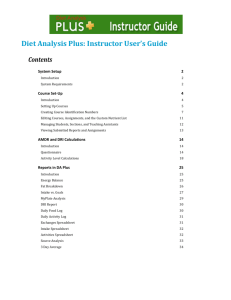SU-Bicycling_And_Calories_Problem_Set_Solutions
advertisement
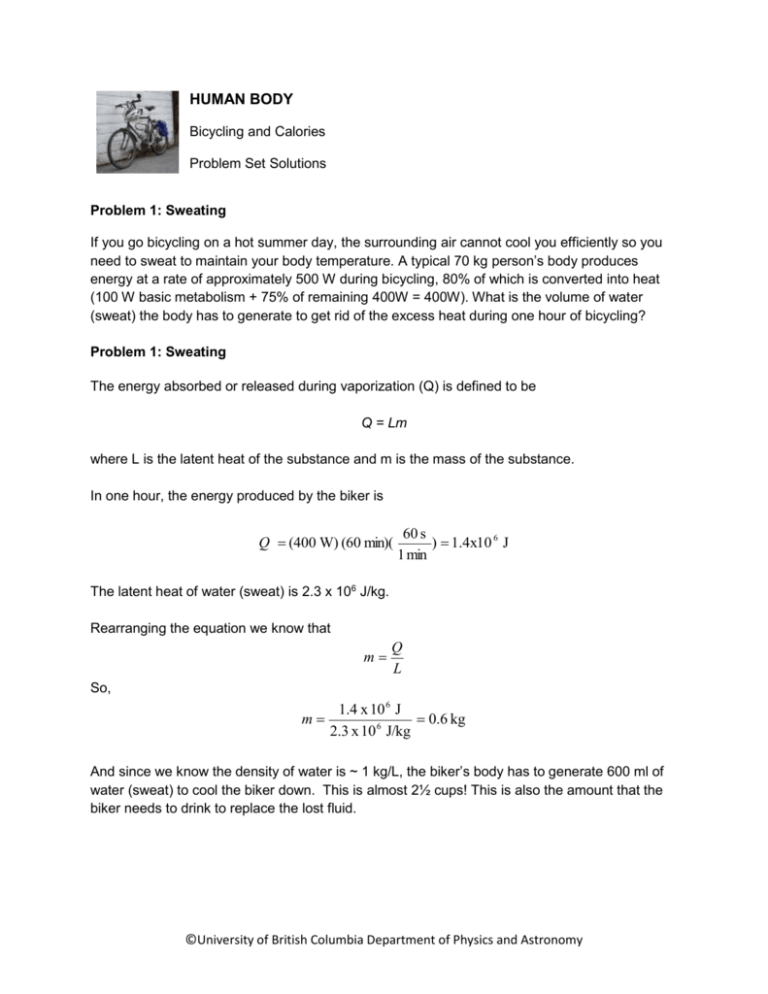
HUMAN BODY Bicycling and Calories Problem Set Solutions Problem 1: Sweating If you go bicycling on a hot summer day, the surrounding air cannot cool you efficiently so you need to sweat to maintain your body temperature. A typical 70 kg person’s body produces energy at a rate of approximately 500 W during bicycling, 80% of which is converted into heat (100 W basic metabolism + 75% of remaining 400W = 400W). What is the volume of water (sweat) the body has to generate to get rid of the excess heat during one hour of bicycling? Problem 1: Sweating The energy absorbed or released during vaporization (Q) is defined to be Q = Lm where L is the latent heat of the substance and m is the mass of the substance. In one hour, the energy produced by the biker is Q (400 W) (60 min)( 60 s ) 1.4x10 6 J 1 min The latent heat of water (sweat) is 2.3 x 106 J/kg. Rearranging the equation we know that m Q L So, m 1.4 x 10 6 J 0.6 kg 2.3 x 10 6 J/kg And since we know the density of water is ~ 1 kg/L, the biker’s body has to generate 600 ml of water (sweat) to cool the biker down. This is almost 2½ cups! This is also the amount that the biker needs to drink to replace the lost fluid. ©University of British Columbia Department of Physics and Astronomy Problem 2: Running Speeds After spending the holiday with your family, you have put on a bit of weight. You decide to go running and do a 6.0 km long run on flat terrain. You are wondering whether you should run the distance at a fast or a moderate pace to burn more calories. You go online and read that a 59 kg person burns 590 kcal running at 9.7 km/h for an hour and 797 kcal running at 12.9 km/h for an hour. Should you run the 6.0 km at a fast (12.9 km/h) or a moderate (9.7 km/h) pace to burn more calories? Explain your reasoning and show all your work. Problem 2 Solution: Running Speeds What we know: d = 6000 m m = 59 kg t = 3600 s vm = 9.7 km/h = 2.69 m/s kcalm = 590 kcal vm = 12.9 km/h = 3.58 m/s kcalm = 797 kcal At a moderate pace: d 6000 m 2230 s v 2.69 m/s 590 kcal 1 h calories : ( )( )2230 s 365 kcal 1h 3600 s t At a fast pace: d 6000 m 1676 s v 3.58 m/s 797 kcal 1 h calories : ( )( )1676 s 371 kcal 1h 3600 s t At either pace you burn practically the same number of calories so you can run at a slower pace, it will just take a bit longer. Janelle Van Dongen, Georg Rieger and Brittany Tymos 2010/07/02 ©University of British Columbia Department of Physics and Astronomy
